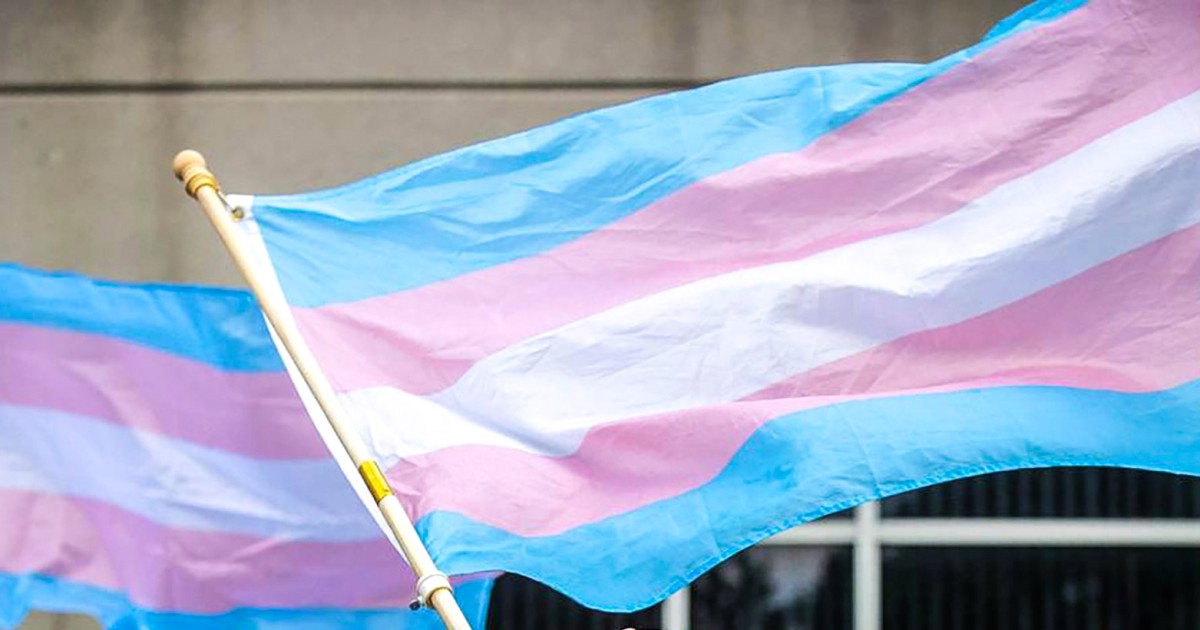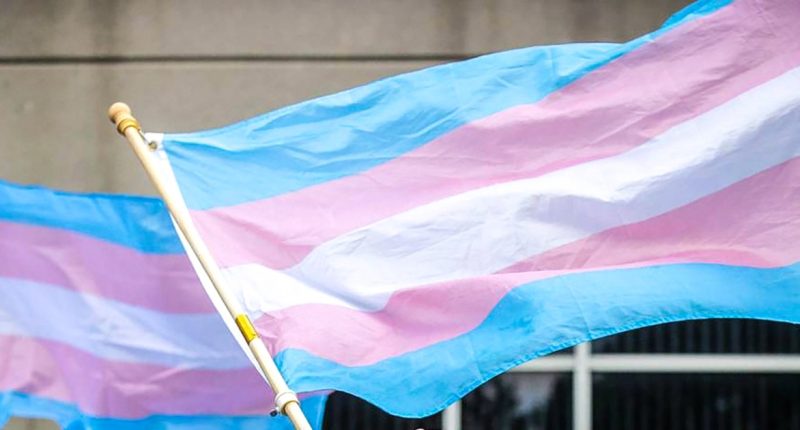
A survey of more than 90,000 transgender people in the U.S. — the largest nationwide survey of the community ever — found that trans people continue to experience workplace and medical discrimination. However, the overwhelming majority of them still report more life satisfaction after having transitioned.
The National Center for Transgender Equality, or NCTE, one of the country’s largest trans rights organizations, released its 2022 U.S. Transgender Survey Early Insights report Wednesday after a yearslong delay due, in part, to the pandemic. The survey, the most comprehensive look to date at life for transgender people in the U.S., comes as hundreds of bills in the last three years have attempted to roll back trans rights, most often by restricting trans people’s access to transition-related health care and trans students’ abilities to play school sports.
“There’s still a drought of information available to lawmakers, the media and advocates regarding our experiences and our needs,” NCTE Executive Director Rodrigo Heng-Lehtinen said at a news conference Tuesday. “At best, we’re working in a vacuum of information. At worst, we’re combating dangerous misinformation being spread by anti-trans extremists. Without question, the misinformation and lack of understanding is underpinning these escalating legislative attacks against our community.”
The organization’s 2015 U.S. Transgender Survey had been the largest survey of trans people in the country, with nearly 28,000 respondents 18 and older, and it has been widely cited, including by Congress and the Supreme Court. Josie Caballero, the director of the survey, said the 2022 iteration more than tripled the number of respondents — with a total of 92,329 from every state and many U.S. territories — and was improved in a number of other ways. For example, it included 605 possible questions (though no respondent received all possible questions), up from 324 in the 2015 survey, and it included more than 8,000 respondents who were 16 and 17. However, study authors note that respondents who participated in the online survey were not drawn from a random sample and that though the sample is large, the findings might not be representative of all trans people.
Of the 84,170 adult respondents, 38% identified as nonbinary, 35% identified as transgender women, 25% identified as transgender men and 2% identified as cross-dressers.
Continued discrimination and mistreatment
Among the key findings released Wednesday, the survey found that trans people continue to report experiencing discrimination and mistreatment because of their gender identities and/or expressions.
More than one-third of adult respondents, or 34%, were experiencing poverty at the time of the survey, and 18% were unemployed. More than 1 in 10, or 11%, of respondents who had ever held jobs said they had been fired or forced to resign or had lost jobs or been laid off because of their gender identities or expressions. And, in line with previous survey findings, 30% of respondents had experienced homelessness in their lifetimes.
Of adult respondents who saw health care providers in the previous 12 months, 48% reported having had at least one negative experience because they were transgender, including being refused health care, having staff members use the incorrect pronouns for them or having providers use abusive language or be physically rough or abusive while treating them. Fear of mistreatment prevented 24% of respondents from seeing doctors when they needed it in the 12 months before the survey.
Many respondents also reported past mistreatment in school. Of adult respondents, 80% who were out or perceived as trans in K-12 experienced one or more forms of mistreatment, including verbal harassment, physical attacks, online bullying or being denied use of the restrooms or locker rooms that matched their gender identities. Of the 8,159 respondents who were 16 and 17, 60% reported such mistreatment.
Higher life satisfaction after transition
Despite those negative experiences, the vast majority of adult respondents, 79%, who lived at least some of the time in different genders from the ones they were assigned at birth reported that they were “a lot more satisfied” with their lives. An additional 15% reported they were “a little more satisfied.”
Respondents who received transition-related medical care reported similarly high rates of satisfaction. Of respondents who were currently receiving hormone treatment, 84% said receiving such treatment for their gender identities/transitions made them “a lot more satisfied” with their lives, and 14% said it made them “a little more satisfied.” Just 1% said hormone treatment made them neither more nor less satisfied, and less than 1% said hormone treatment made them a lot less satisfied.
Of respondents who underwent at least one form of gender-affirming surgery, 88% said it made them “a lot more satisfied,” and 9% said it made them a little more satisfied. Less than 2% total said surgery made them a little less or a lot less satisfied.
“That might seem obvious to some of us that of course if you’re transgender and you need transition-related health care, of course your life is better off when you get that health care,” Heng-Lehtinen said Tuesday. “But it’s really important to have actually asked people and found out objectively what is their experience, because transition-related health care is otherwise so under attack in state legislatures around the country.”
Effects of anti-trans legislation
In the last three years, 23 states have restricted gender-affirming health care — including puberty blockers, hormone therapy and surgeries — for minors and, in a few cases, adults, according to the Movement Advancement Project, an LGBTQ think tank. Half of states have banned trans student-athletes from playing school sports on the teams that align with their gender identities rather than their assigned sexes at birth, while 10 states have passed laws restricting what bathrooms trans people can use in schools, colleges and/or government-owned buildings.
Nearly half of respondents to the latest U.S. Transgender Survey said they had thought about moving to other states because their state governments considered or passed such laws that target transgender people, and 5% — about 4,600 people — said they had actually moved to other states because of such legislation.
The top 10 states where trans respondents most often reported moving from were, in alphabetical order, Alabama, Arizona, Florida, Georgia, Missouri, North Carolina, Ohio, Tennessee, Texas and Virginia.
Related stories:
Majority report having supportive families
The state of trans rights across the country does not necessarily reflect what trans people are experiencing at home with their families. Of adult respondents, 67% reported that their immediate families were either supportive or very supportive, while 22% reported they were neither supportive nor unsupportive and 12% reported they were either unsupportive or very unsupportive.
Of 16- and 17-year-old respondents, 44% reported that their families were either supportive or very supportive, while 28% reported that they were neither supportive nor unsupportive and 29% reported they were unsupportive or very unsupportive.
“It’s important to see that many trans people do have supportive families, since we often hear and see otherwise,” Sandy James, one of the report’s authors, said at Tuesday’s news conference.
Heng-Lehtinen said the new data will revolutionize the field of transgender advocacy.
“I am confident that the results of the 2022 survey will not only serve as a crucial tool for education, research and policy, but it will catalyze a paradigm shift for the movement for transgender advocacy by empowering advocates with robust and current data regarding our needs and experiences,” he said.
For more from NBC Out, sign up for our weekly newsletter.
Source: | This article originally belongs to Nbcnews.com










